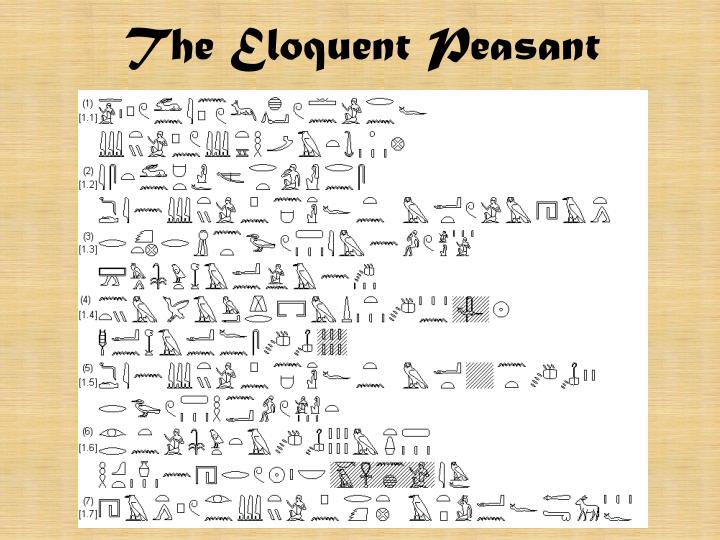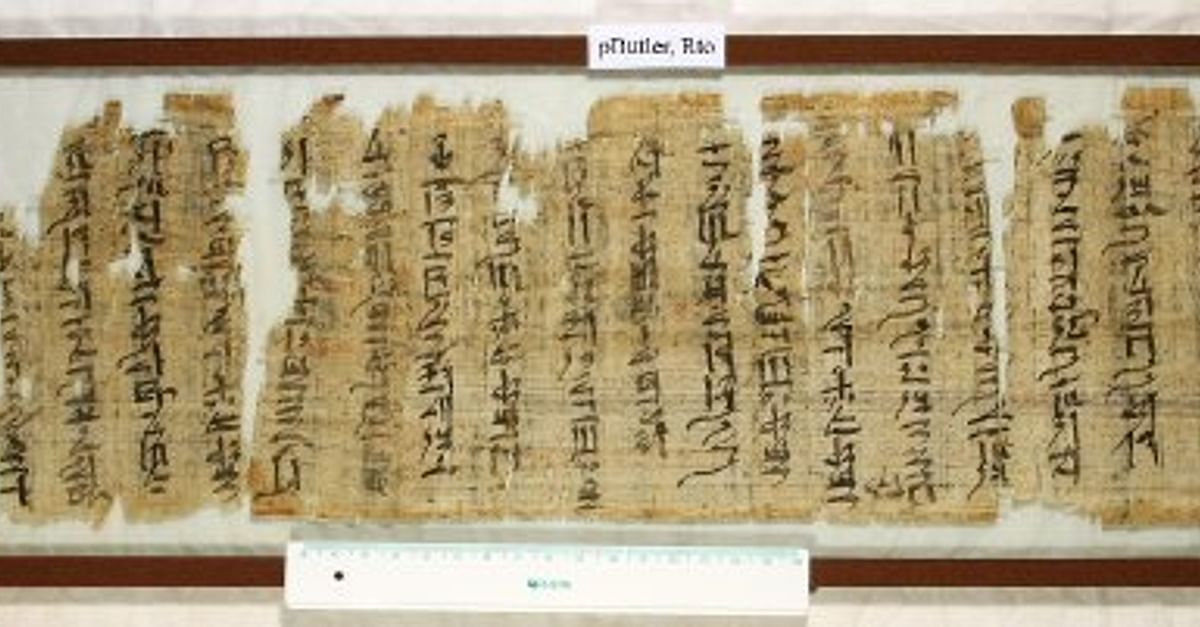

It becomes an ethical question: can we appreciate what's said without actually respecting the meaning behind it? Is it perverse to enjoy art when it reflects suffering? There's still a disjunction here, but the text highlights the aesthetic life that language can attain irrespective of its function. Of course, it's also possible that his word-use was pleasant for its own sake, and the steward just wanted to hear the merchant talk. My quote above reveals the frustration the peasant feels at having to jump through hoops like a seal for a few loaves of bread. Here we see a poor man pleading for his livelihood, which is turned into a game by a government official who cares more about the words spoken than the content or meaning behind them. But there is also the allure of the manipulative function of rhetoric, and the steward’s interest may not be entirely innocent. True, there is a transparent appreciation for the power of orative skill here, and the Egyptians understood the weight of language.

Everything ends on a happy note.īut this “happy note” smells sour because of the disquieting implication lurking behind the steward’s captivation. The peasant figures this out and continues the speeches-ranging from respectful, to angry, to desperate, to insulting-if only to thank the steward. In reality the steward was immediately persuaded and had food sent to the peasant’s wife, but wants to hear the petitions anyway. The steward is so impressed by the peasant’s eloquence and rhetoric that me makes him orate multiple petitions (nine in total) before delivering a verdict. It recounts the story of a Nile peasant-merchant who’s been robbed and visits the Pharaoh’s steward for justice. But where the Shipwrecked Sailor was comical, the Eloquent Peasant is strangely perverse. It’s reminds me of the Tale of the Shipwrecked Sailor, where the normally dry and prosaic Egyptian prose actually teases itself. (…Yes?) Tale of the Eloquent Peasant, a fable from Egypt’s Middle Kingdom, is surprisingly self-conscious. ‘So, shall I live on your bread, and drink your beer for ever?’ (…Yes?) Tale of the Eloquent Peasant, a fable from Egypt’s Middle Kingdom, is surprisingly self-conscious.


 0 kommentar(er)
0 kommentar(er)
